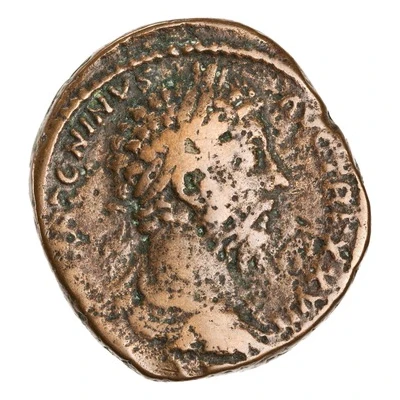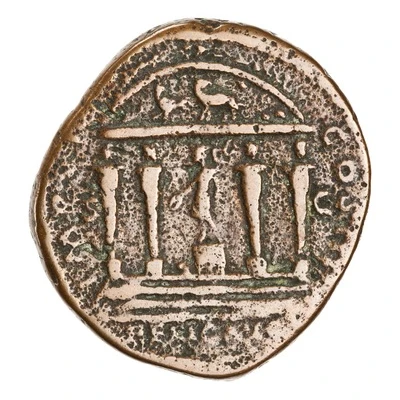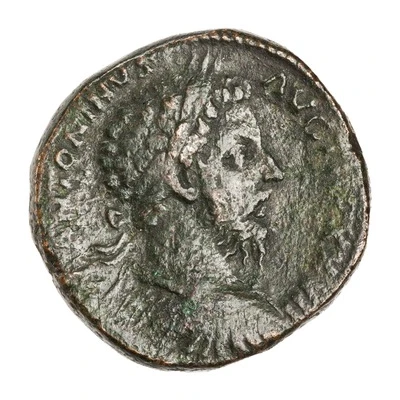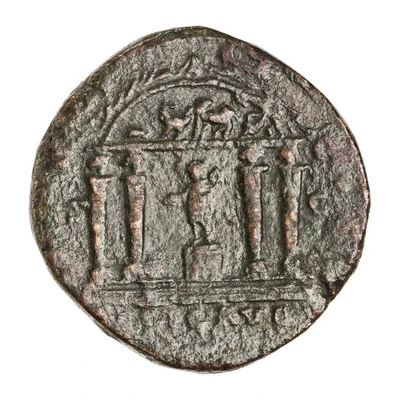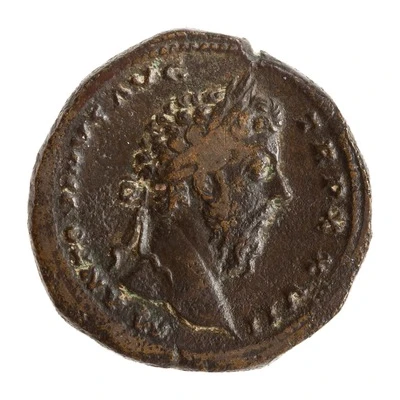
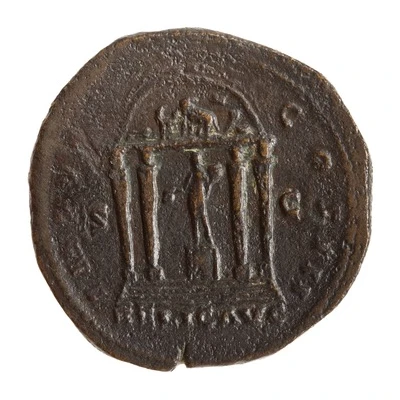

© American Numismatic Society (ANS)
Sestertius - Marcus Aurelius IMP VI COS III S C RELIG AVG; Mercury
| Bronze | 25.6 g | 31 mm |
| Issuer | Rome › Roman Empire (27 BC - 395 AD) |
|---|---|
| Emperor | Marcus Aurelius (Marcus Aurelius Antoninus) (161-180) |
| Type | Standard circulation coin |
| Years | 172-173 |
| Value | 1 Sestertius = ¼ Denarius |
| Currency | Denarius, Reform of Augustus (27 BC – AD 215) |
| Composition | Bronze |
| Weight | 25.6 g |
| Diameter | 31 mm |
| Shape | Round (irregular) |
| Technique | Hammered |
| Orientation | Variable alignment ↺ |
| Demonetized | Yes |
| Updated | 2024-10-06 |
| Numista | N#263780 |
|---|---|
| Rarity index | 100% |
Reverse
Statue of Mercury, wearing petasus and short robe, standing front, head left, on base, holding purse in right hand and caduceus in left hand, within a tetrastyle temple; columns are telamons; the pediment is semicircular and contains, from left to right, tortoise, cock, ram, petasus, winged caduceus, and purse.
Script: Latin
Lettering: IMP VI COS III S C RELIG AVG
Translation:
Imperator Sextum, Consul Tertium. Senatus Consultum. Religio Augusti.
Supreme commander (Imperator) for the sixth time, consul for the third time. Decree of the senate. The religion of the emperor (Augustus).
Comment
Mass varies: 22.07–31.19 g;Diameter varies: 30–32 mm;
Example of this type:
American Numismatic Society (ANS)
Source:
Online Coins of the Roman Empire (OCRE)
Interesting fact
One interesting fact about this coin is that it features an image of the Roman god Mercury on the reverse, which was a common motif on Roman coins during the reign of Marcus Aurelius. Mercury was the messenger of the gods and was often depicted with wings on his sandals and a winged cap, as seen on this coin. The inclusion of Mercury on the coinage of Marcus Aurelius may have been intended to emphasize the emperor's role as a messenger of peace and prosperity throughout the empire.
